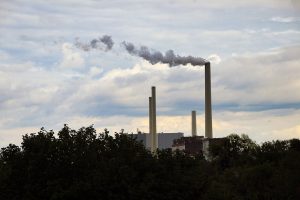THE Department of Energy (DoE) said coal-fired generating plants can support the Philippines’ baseload power needs until about 2030.
Energy Secretary Raphael P.M. Lotilla described as sufficient the baseload capacity of over 6,300 megawatts (MW) due to the relative newness of many coal-fired power plants.
“We are prepared for the various scenarios of the energy transition and the relatively young age of these coal plants help ensure that we will have enough baseload capacity through to 2030,” Mr. Lotilla said in a forum organized by the Philippine Chamber of Commerce and Industry on Wednesday.
He said that the dependable coal capacity aged 10 years or younger can be relied on to operate for at least another 30 years.
He said that more than 3,400 MW of dependable coal capacity is between 10 and 30 years old, allowing for at least a further 10 years of operations.
“We do not set aside our responsibility to ensure adequate baseload capacities in conjunction with our push to increase RE (renewable energy) share in the power mix,” Mr. Lotilla said.
In 2022, the DoE issued a moratorium on the development of new coal-fired power plants to reduce the Philippines’ dependence on coal.
“While there is an existing moratorium on building coal-fired power plants. There are also exemptions for committed, indicative, and expansion plans,” Mr. Lotilla said.
“It is not the moratorium but the market that has discouraged construction of coal plants. The scarcity of financing, higher insurance costs and the risks of carbon taxes and carbon pricing have deterred new coal projects,” he added. — Sheldeen Joy Talavera
